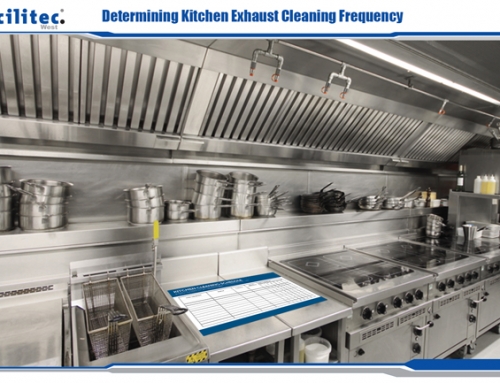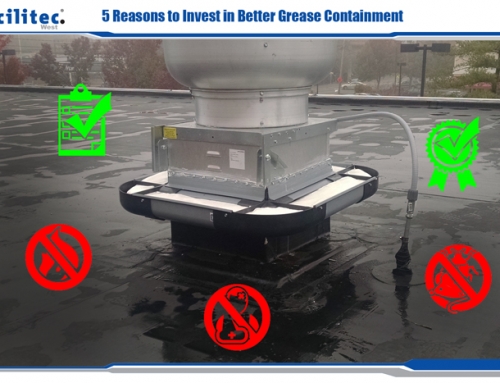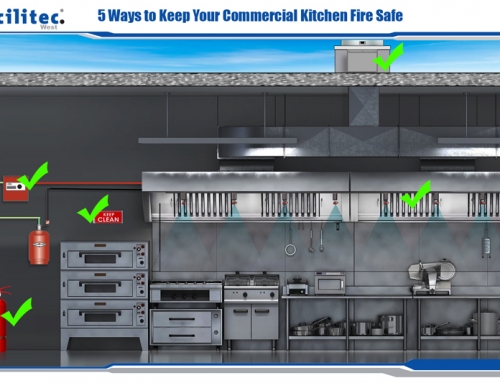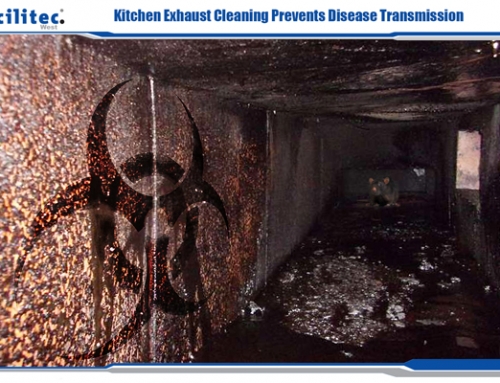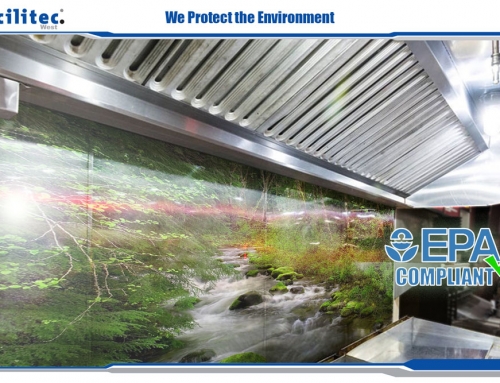Sizzling wings, crispy fries, juicy burgers, yum! These are all foods your customers love to eat, but the process of cooking them can cause a large amount of grease to build up in commercial kitchen exhaust hood systems. Unfortunately, when not cleaned properly by professionals, this buildup will lead to serious fire hazards, which is the last thing a restaurant, or any food establishment for that matter, wants to worry about.
Restaurants may vary by the different types of delicious food they prepare and serve their customers, but no matter the type, each restaurant contains similar fire risks when engaging in cooking activities. The cook line, hood filters, rooftop exhaust fan, and ducting in between are all considered potential fire hazards for commercial kitchens.
In fact, according to the NFPA’s study on fires in eating and drinking establishments, cooking equipment is the leading cause of restaurant fires. In addition to cooking equipment, the following sources round out the top five causes of all restaurant fires:
- Cooking equipment
- Cooking equipment is responsible for 61% of restaurant fires
- 31% of these fires involved deep fryers
- 18% involved cooking ranges
- 11% involved cooking grills
- Electrical distribution and lighting equipment
- Faulty appliances, worn or faulty electrical wiring, improper use of electrical outlets, and worn out breaker boxes are responsible for 9% of restaurant fires.
- Heating equipment
- Heating, ventilating, and air conditioning (HVAC) systems are responsible for 9% of restaurant fires.
- Smoking materials
- Cigarettes are responsible for 7% of restaurant fires. Many smoking fires are started near trash cans.
- Intentional
- Arson is responsible for 4% of restaurant fires.
These top five causes account for 90% of all restaurant fires recorded by the NFPA. It’s worth noting that a whopping 22% of the restaurant fires involving cooking equipment were caused by failure to clean kitchen equipment, which is 100% preventable.
Keep It Clean
The NFPA’s findings emphasize the importance of fire safety and prevention for the restaurant industry, especially as it relates to commercial kitchen cooking equipment. As the leading cause of restaurant fires, cooking equipment should be cleaned and regularly maintained to prevent these fires from occurring. Restaurant cooking equipment is different from equipment in your home and requires a lot more maintenance. Fast food establishments and other facilities that perform a lot of grilling and frying produce an average amount of 150 to 250 pounds of grease per week and up to 1,000 pounds per month! This means they need to be cleaned and maintained frequently to keep their fire risk as low as possible.
Your kitchen exhaust hood system should be your top priority when cleaning because these are the systems that remove the heat, smoke, and grease vapors that accumulate during cooking. By properly degreasing your exhaust hood and ducts, you minimize the highly flammable grease that builds up in these systems.
NFPA Fire Standards
Is your restaurant up to date with the current fire code? Your restaurant should meet NFPA96 Standards, which includes the maintenance and cleaning of commercial cooking equipment and exhaust hood systems.
The NFPA calls for different cleaning frequencies depending upon the type of facility and type of cooking taking place in the establishment. NFPA96 Standards frequencies are:
As a restaurant owner, it is imperative to comply with these standards to pass fire marshal inspections and ultimately to prevent fires.
How Facilitec West Can Help!
A shiny hood in the kitchen after cleaning does not mean those hard to reach and even harder to see areas have been properly cleaned. At Facilitec West, we provide comprehensive cleaning and maintenance solutions to ensure that your kitchen exhaust system is compliant with the National Fire Protection Association Standard 96 and IKECA ANSI C-10 Standard. We provide documentation to show that your exhaust system is properly maintained. Take a look at our website to see other services we offer and learn more about our team– we look forward to servicing your facility!



